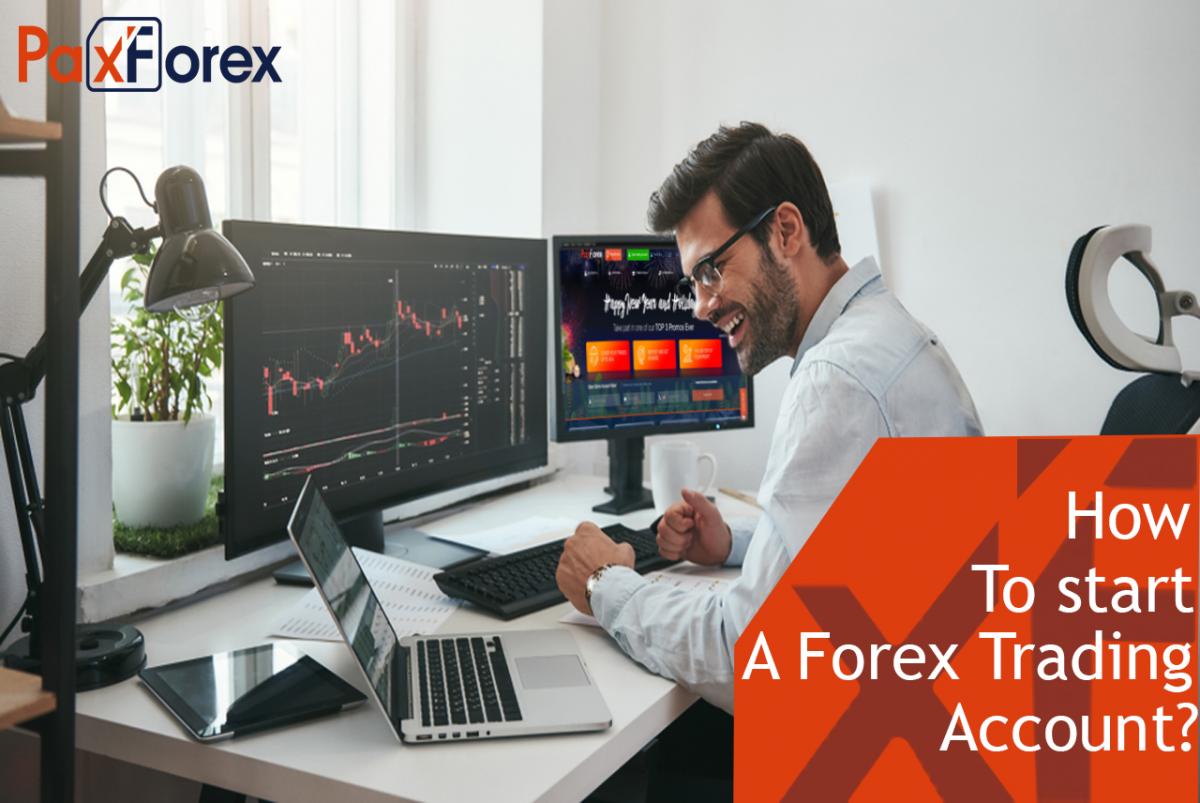
6 steps that a novice trader must take to start trading Forex. There is certainly no such person who has not heard about the currency market, Forex. Someone saw advertising about fabulous profits, which can be obtained almost doing nothing, someone tells scaring stories claiming that Forex is a scam and hoax, and someone is sure that trading is available only to very rich people and the common person has nothing to do with it. And only traders know that
• Forex trading is hard work,
• a trader is a specialty, and sometimes a profession,
• the money earned in the currency market is not easy.
And if you are attracted to earning opportunities in financial markets, then it is time to become a trader! So, where and how should you start?
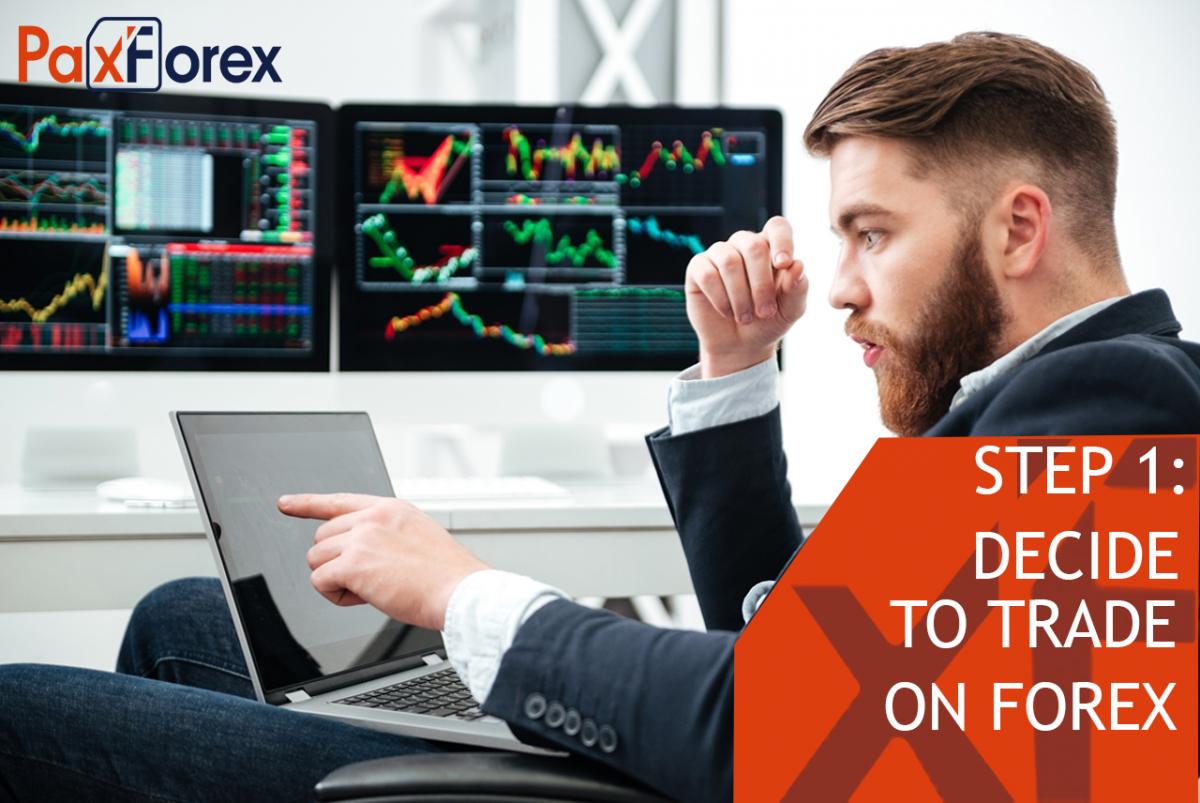
First of all, you need to think very carefully ... Forex is not a casino where you can get money by guessing the rate, nor a bank where interest accumulates over time without our participation. Trading in the currency market, like any other profession, requires certain knowledge, skills and moral qualities. Trading on Forex requires constantly to learn, improve your knowledge and, most difficult, to be able to make decisions, analyzing your successes and mistakes. Read the previous paragraph again, imagine yourself as a trader and think about whether you really want to devote your time to trading on Forex? If a point causes difficulty or denial in mind, trading can become for you an unpleasant profession that will not bring joy or money. But if you agree that you will have to learn for a while, analyze the market situation daily, strictly approach your actions, and also are ready to receive not only profits, but also losses, then welcome to the currency market! Being ready for the complexities and volatility of Forex trading, the correct working mood and desire make the first step on the trader's way.

Having firmly decided to start trading on Forex, first of all you need to get certain knowledge. Unfortunately, in our everyday life there are practically no skills that could be useful for us to start trading without training – there are many vague names in the terminal, market analysis is so diverse that it is unclear where to start, only bulls and bears can puzzle the beginner for a long time, therefore better be prepared. Usually there are two variants of Forex training:
Training at the company – almost every Forex broker or dealer center offers to take an initial training course where you will learn the basics. These courses can be both free and paid, have a face-to-face and distance form and last from a couple of weeks to several months.
Pros:
• By treating the “classes” with the right amount of diligence, you are guaranteed to receive the basic knowledge necessary to start trading on Forex within the prescribed time.
Cons:
• Training must be paid. The amount depends on the company's policy.
• The subjective opinion of the teacher becomes for the newcomer something like an immutable truth, sometimes forming a distorted view of things, which is very difficult to get rid of.
• The quality of the training depends directly on the competence of the teacher. There are some chances of getting the courses, which will not be useful at all.
• Some brokers may begin to persuade the trainee to open a large real account at their company after the course is completed. As a rule, it is pretty easy to convince a beginner trader of the need for such a step.
Independent Forex training – nowadays the Internet is simply overflowing with information. These are specialized training sites, forex forums and traders' blogs, where the newcomer can quickly understand the fundamentals of the currency market.
Pros:
• self-paced training, of course, does not cost you a penny.
• you can devote all your free time or time to study that's convenient for you.
• you can draw conclusions yourself by comparing material from different sources.
Cons:
• when you are trading on your own, a beginner trader will have to dig through a lot of information about how to start trading on Forex. A smart person quickly will understand what`s what, but the process can take longer in time.
• There Is No One to ask a question. Sometimes during the training you can meet situations that are not clear at all. It will slow further progress and complicate the process itself. In such cases, the instructor's experienced advice would be very useful, but you are on your own. There is a way out – use profile forums and threads with questions from beginners. Your question will not be difficult for practitioner and he will gladly help you.
Forex training is a stage in trading which cannot be skipped. It can be compared to driving courses for full-time gulls when driving on a country road seems not difficult, but on a track or in a city at rush hour can bring serious problems for wallet and self-confidence.
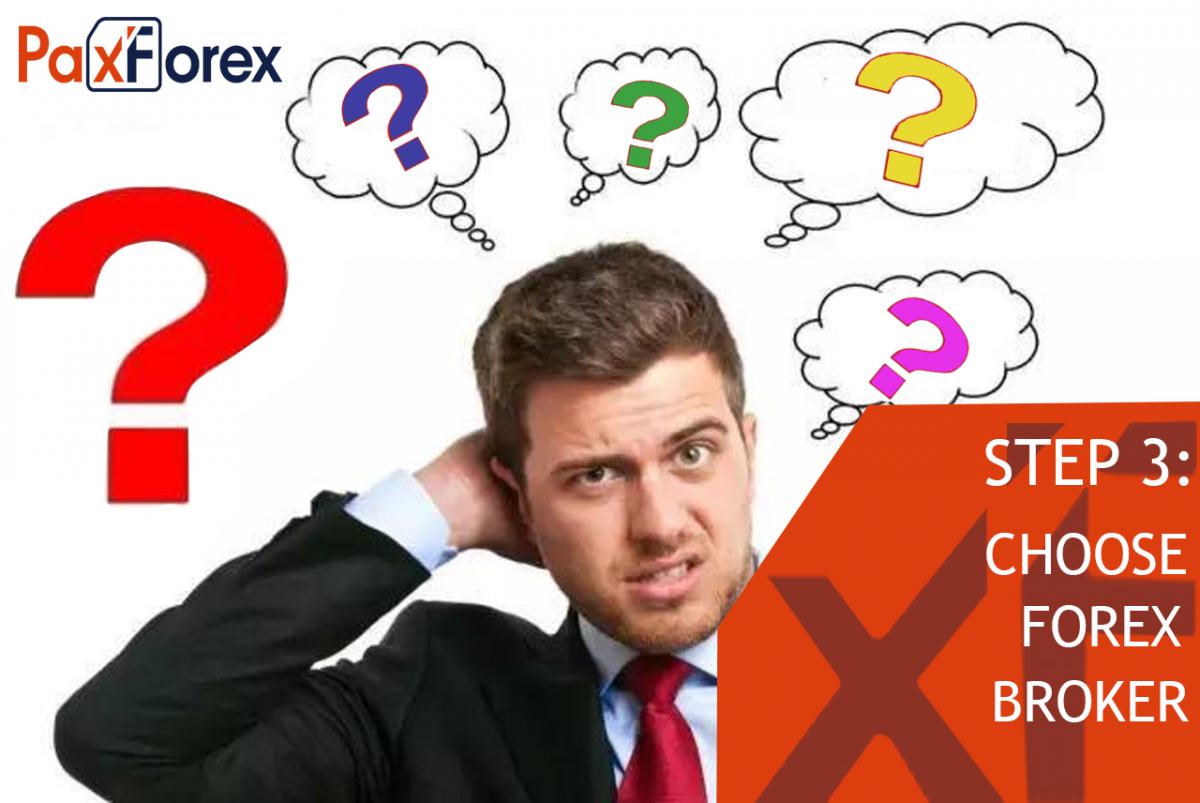
With the necessary minimum of knowledge, you can start trading in the currency market. Forex trading services are provided mainly by Forex brokers, foreign currency centers and banks. So you need to select the company you trust. This stage is very responsible because you are one and there are many forex brokers. There are many useful articles about how to choose Forex broker. The beginner trader is greatly assisted by Forex brokers' ratings, traders' reviews, and claims to companies that are usually placed in specially designated sections on Forex forums. Working with a reputable broker can mean the difference between profiting from your trades and losing money between the bid and the ask price. Don’t be afraid to thoroughly research and read the reviews of a variety of brokerage firms. Don't hesitate to ask! Everyone was a newcomer once and faced the same questions and problems. The beauty of Forex is that traders do not compete with each other, no one takes bread from anyone, everyone earns by virtue of his skills and abilities. This concept has friendliness and support, and, as a rule, on good resources questions of beginners are never left without competent answers. Sometimes you can hear such an opinion "it doesn`t matter where to open the first demo account". It is true, on virtual money trading can be profitable everywhere, but for the beginner trader is very difficult to evaluate the company adequately after stable trading on the demo, he/she will for sure open a real account with the same company. Therefore, it is better to think about the choice of Forex broker at the very beginning. Broker is your companion; he needs to be really trustworthy!
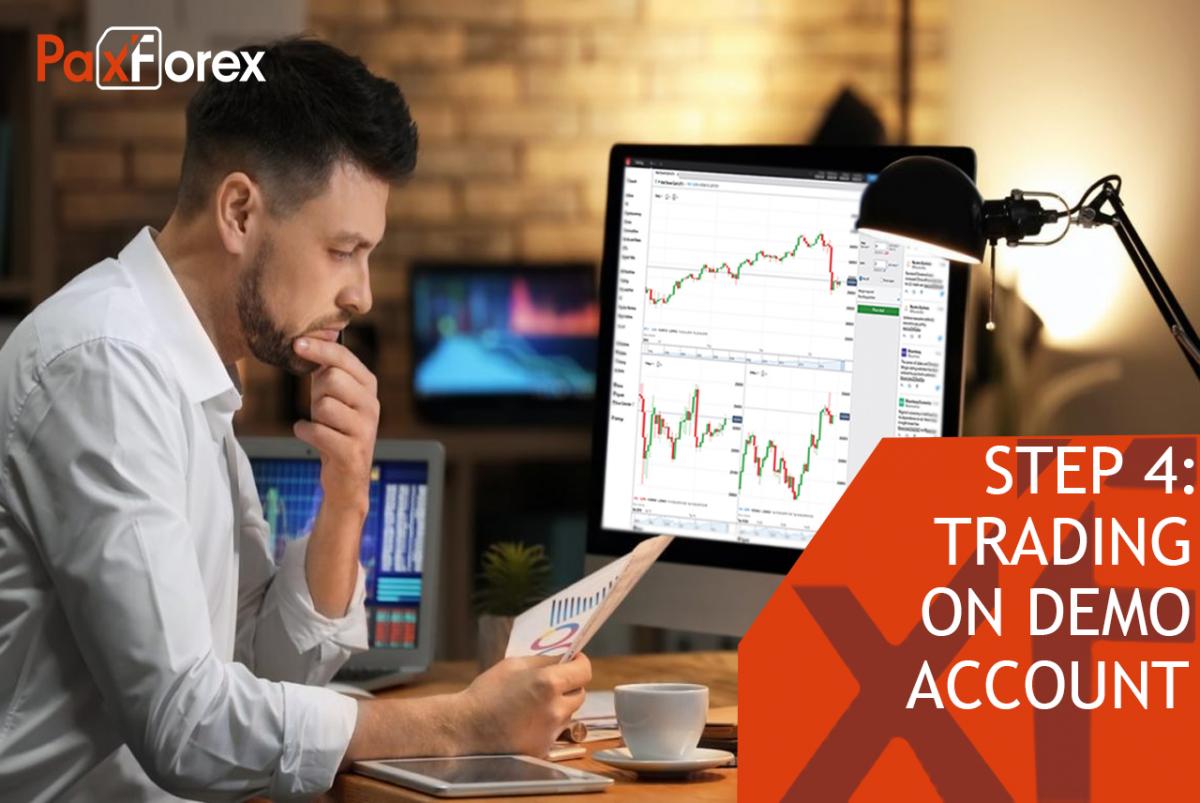
Perhaps no one can even think that a person who has just finished civil aviation pilots' courses will sit on the wheel of passenger Boeing. Similarly, it is strongly recommended that a beginner trader who has only theoretical knowledge and then in a minimum volume should not open a real trading account immediately. How then can a novice trader gain practical experience? For this purpose all Forex brokers and DC provide a demo account service. Demo account is opened free of charge, is replenished with virtual money and allows to trade on conditions similar to real ones.
What is a Forex Demo Account for?
Trading on it is conducted for virtual money and, as all Forex brokers declare (although in fact it is not quite so), is no different from trading on the real account. Trading on demo account you get used to the trading terminal, mastering its functions, trying yourself in one or another type of trading (scalping, intra-day, short-term, medium-term or long-term trade), test trading strategies, select technical indicators, etc. Figuratively speaking, demo-account is a Forex simulator. The advantage of demo-account is that lost deposit will not hit your pocket in any way. Just open a new demo account and continue to develop the Forex trading experience. The situation with trading strategy is much more complicated. There are quite effective systems that are suitable for beginners, so just try few, choose the best and easiest for you and stick to it.
Step 5: Shift from demo account to real deposit
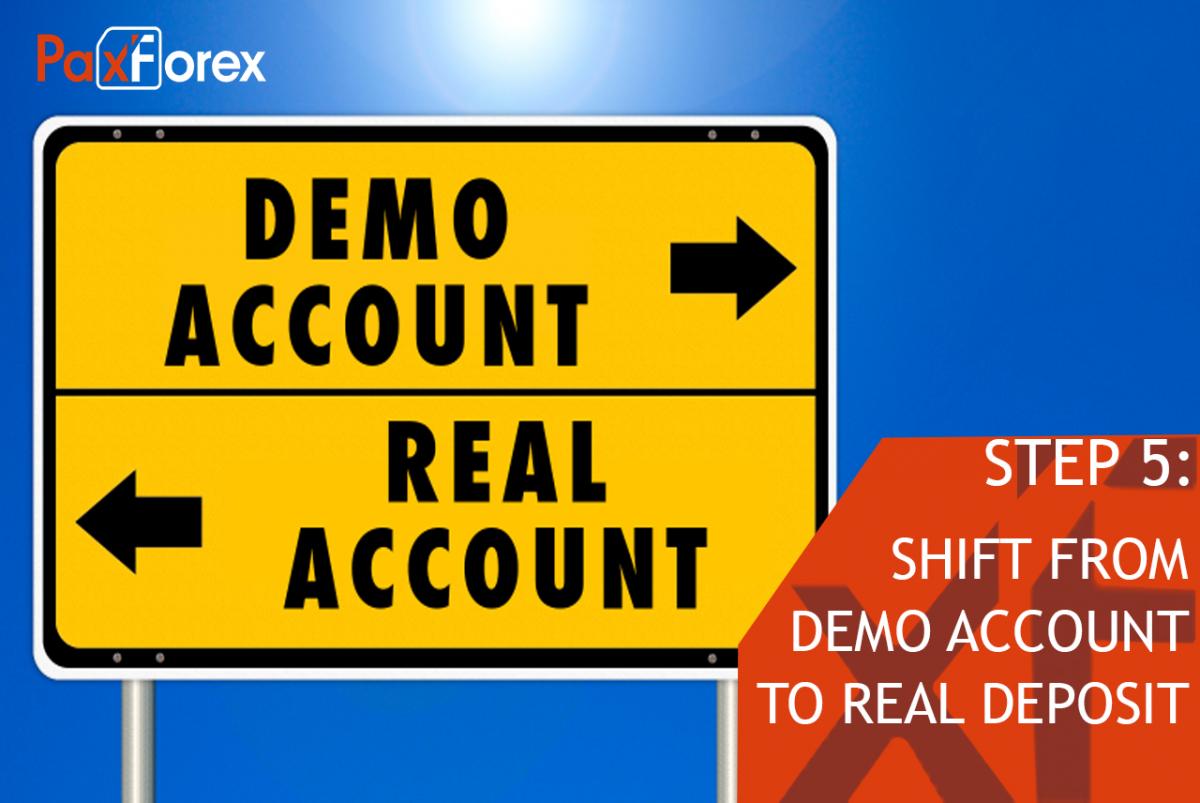
So, the trading terminal is mastered, necessary trading knowledge obtained, the balance on the demo-account steadily increases… Isn't it time to go to real account? The beginner trader anticipates the future profits. This is where you think again and make decision. The fact is that Forex trading carries high risks and losses are inevitable. The reverse side of high incomes is loss. And, unlike demo-account, money is no longer virtual and will not replenished by a broker`s support team. Here comes the most frequently asked question – what is the minimum amount to start a forex account? The minimum deposit for trading is (theoretically) one dollar. Such offers are in the arsenal of many brokerage companies, but such an advantage as a teeny initial deposit has a drawback - it is very difficult to learn how to manage capital and it is super easy to lose such a small deposit.
The optimal option for a beginner is to start with $100 deposit into a trading account. On one hand, the loss of money (though it`s a pity) is not critical. On the other hand - you can trade micro lots (0.01) and freely use almost any existing strategy. When market awareness, skills and confidence are there, you can invest $1,000 or more. However, for each trader the situation differs, and you will understand yourself what amount is needed for successful capital increase. A good profit is a value from 10 to 30% per month, so you can count how much to invest for a significant income. The conclusion is simple - $100 is enough and you don`t need more in order to start. BUT, in order to really earn decent income, it is necessary to invest $1,000 and more. While trading, remember the iron-fisted rule – put in trade only as much money as you are ready to lose. Only invest your money in trading. In no case should you sell anything, borrow from someone or take a loan. There is a very great chance that you will stay both without money and with debts. Be prepared to the fact that trading on demo account and with real deposit are similar technically, but absolutely different in terms of psychological toll. If you lose virtual funds on the demo account, the loss of every cent will bring an irresistible desire to immediately return losses, take revenge on the market. In 100% of these cases, these actions cause even greater losses. So before opening a real account, learn more about the next stage of Forex trading.
Step 6: Psychological preparation of the trader
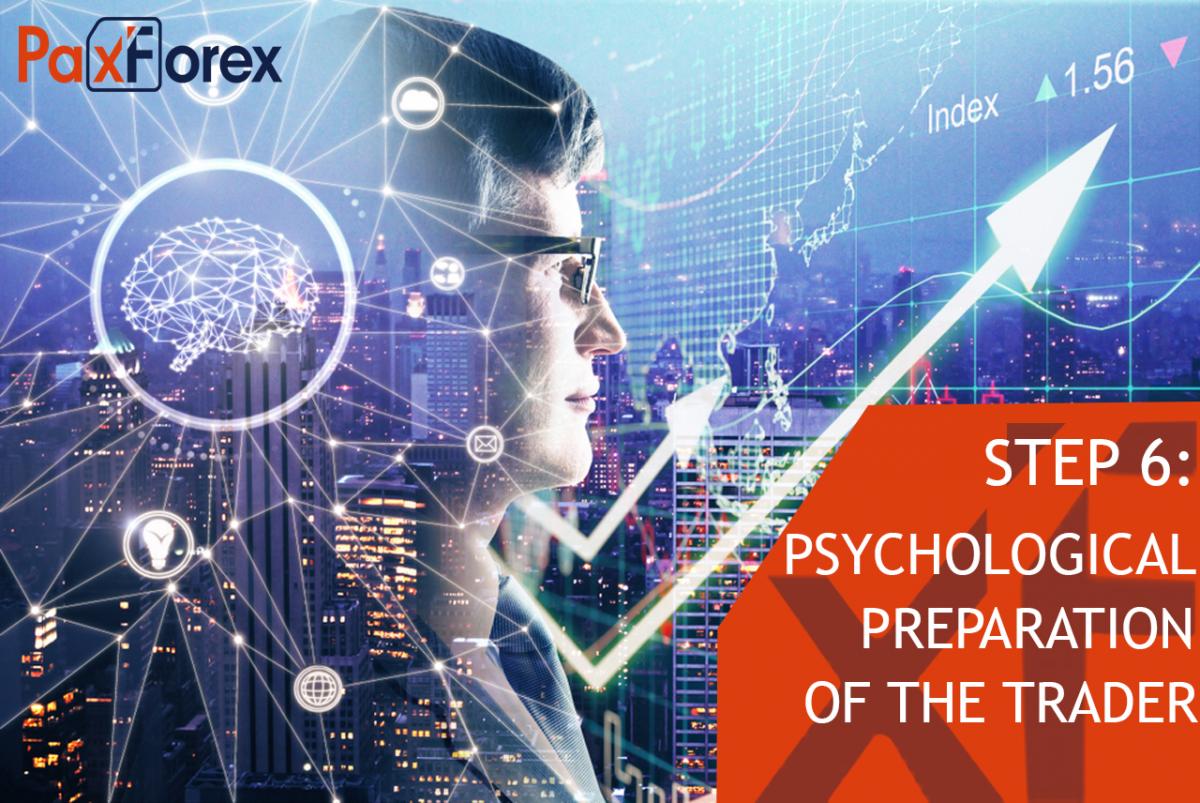
We will repeat again, there is no trading without losses. This does not mean that by losing one deposit after another you are doing everything normally. Systematical loss means that you need to change something: trading strategy, type of trading, or maybe just take a break. Losses in Forex trading are an integral part of the trader's profession. The ability to cope with the emotions is no less important than the ability to analyze the market situation correctly and to work with indicators. Reckless risk-taking and spontaneous decisions are not a place in trade. This is the way to lose your deposit.
Many books and educating materials have been written on the psychology of trading. Despite the seeming "humanitarian", the psychology of the Forex trading is written with losses, sometimes very large ones, so ignore them - to harm yourself. Learn how to control your emotions, create a trading plan and do not step back from it. Don't hesitate to ask more experienced colleagues. Of course, everything will not be smooth. There will be ups and downs, joy from the profit received and grief from losses. Don't be discouraged, even the most successful traders once started trading and were green newcomers. Remember that the longest path starts with a small step, and you have to keep putting one foot in front of the other.
We are one of the fastest growing Forex Brokers in the Market. Trade with PaxForex to get the full Forex Trading experience which is based on...
- The Reliability on all Assets in the Market
- Trusted Worldwide for over a Decade
- Live Multi-Lingual Online Support 24/5














